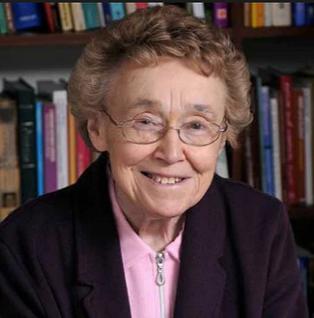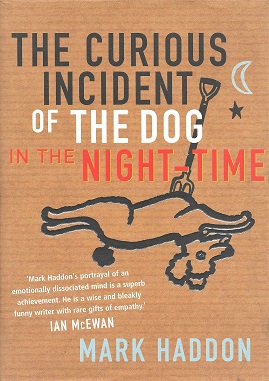
Victor of Aveyron was a French feral child who was found around the age of 9. Not only is he considered one of the most famous feral children, but his case is also the most documented case of a feral child. Upon his discovery, he was captured multiple times, running away from civilization approximately eight times. Eventually, his case was taken up by a young physician, Jean Marc Gaspard Itard, who worked with the boy for five years and gave him his name, Victor. Itard was interested in determining what Victor could learn. He devised procedures to teach the boy words and recorded his progress. Based on his work with Victor, Itard broke new ground in the education of the developmentally delayed.

Asperger syndrome (AS), also known as Asperger's syndrome or Asperger's, is a term formerly used to describe a neurodevelopmental condition characterized by significant difficulties in social interaction and nonverbal communication, along with restricted, repetitive patterns of behavior and interests. Asperger syndrome has been merged with other conditions into autism spectrum disorder (ASD) and is no longer considered a diagnosis. It was considered milder than other diagnoses which were merged into ASD due to relatively unimpaired spoken language and intelligence.

Aveyron is a department in the region of Occitania, Southern France. It was named after the river Aveyron. Its inhabitants are known as Aveyronnais (masculine) or Aveyronnaises (feminine) in French. The inhabitants of Aveyron's prefecture, Rodez, are called Ruthénois, based upon the first settlers in the area, the Ruteni. With an area of 8,735 square kilometres (3,373 sq mi) and a population of 279,595, Aveyron is a largely rural department with a population density of 32 people/km2.

Lorna Gladys Wing was an English psychiatrist. She was a pioneer in the field of childhood developmental disorders, who advanced understanding of autism worldwide, introduced the term Asperger syndrome in 1976 and was involved in founding the National Autistic Society (NAS) in the UK.

The Curious Incident of the Dog in the Night-Time is a 2003 mystery novel by British writer Mark Haddon. Its title refers to an observation by the fictional detective Sherlock Holmes in the 1892 short story "The Adventure of Silver Blaze". Haddon and The Curious Incident won the Whitbread Book Awards for Best Novel and Book of the Year, the Commonwealth Writers' Prize for Best First Book, and the Guardian Children's Fiction Prize. Unusually, it was published simultaneously in separate editions for adults and children.

Anthony John Attwood is a British psychologist notable for his work on Asperger syndrome. He resides in Queensland, Australia, where he is an Associate Professor at Griffith University.
The refrigerator mother theory, also known as Bettelheim's theory of autism, is a largely abandoned psychological fringe theory that the cause of autism is a lack of parental, and in particular, maternal emotional warmth. Evidence against the refrigerator mother theory began in the late 1970s, with twin studies suggesting a genetic etiology, as well as various environmental factors. Modern research generally agrees that there is a largely epigenetic etiology of autism spectrum disorders.
The following outline is provided as an overview of and topical guide to autism:

The Wild Child is a 1970 French film by director François Truffaut. Featuring Jean-Pierre Cargol, François Truffaut, Françoise Seigner and Jean Dasté, it tells the story of a child who spends the first eleven or twelve years of his life with little or no human contact. It is based on the true events regarding the child Victor of Aveyron, reported by Dr. Jean Marc Gaspard Itard. The film sold nearly 1.5 million tickets in France.
The empathising–systemising (E–S) theory is a controversial theory on the psychological basis of autism and male–female neurological differences originally put forward by English clinical psychologist Simon Baron-Cohen. It classifies individuals based on abilities in empathic thinking (E) and systematic thinking (S). It measures skills using an Empathy Quotient (EQ) and Systemising Quotient (SQ) and attempts to explain the social and communication symptoms in autism spectrum disorders as deficits and delays in empathy combined with intact or superior systemising.

Jean Marc Gaspard Itard was a French physician born in Provence. He is perhaps best known for his work with Victor of Aveyron.

Societal and cultural aspects of autism or sociology of autism come into play with recognition of autism, approaches to its support services and therapies, and how autism affects the definition of personhood. The autistic community is divided primarily into two camps; the autism rights movement and the pathology paradigm. The pathology paradigm advocates for supporting research into therapies, treatments, and/or a cure to help minimize or remove autistic traits, seeing treatment as vital to help individuals with autism, while the neurodiversity movement believes autism should be seen as a different way of being and advocates against a cure and interventions that focus on normalization, seeing it as trying to exterminate autistic people and their individuality. Both are controversial in autism communities and advocacy which has led to significant infighting between these two camps. While the dominant paradigm is the pathology paradigm and is followed largely by autism research and scientific communities, the neurodiversity movement is highly popular among most autistic people, within autism advocacy, autism rights organizations, and related neurodiversity approaches have been rapidly growing and applied in the autism research field in the last few years.
Asperger syndrome (AS) was formerly a separate diagnosis under autism spectrum disorder. Under the DSM-5 and ICD-11, patients formerly diagnosable with Asperger syndrome are diagnosable with Autism Spectrum Disorder. The term is considered offensive by some autistic individuals. It was named after Hans Asperger (1906–80), who was an Austrian psychiatrist and pediatrician. An English psychiatrist, Lorna Wing, popularized the term "Asperger's syndrome" in a 1981 publication; the first book in English on Asperger syndrome was written by Uta Frith in 1991 and the condition was subsequently recognized in formal diagnostic manuals later in the 1990s.

Johann Friedrich Karl Asperger was an Austrian physician. Noted for his early studies on atypical neurology, specifically in children, he is the namesake of the former autism spectrum disorder Asperger syndrome. He wrote more than 300 publications on psychological disorders that posthumously acquired international renown in the 1980s. His diagnosis of autism, which he termed "autistic psychopathy," garnered controversy. Further controversy arose in the late 2010s over allegations that Asperger referred children to the Am Spiegelgrund children's clinic in Vienna during the Nazi period. The clinic was responsible for murdering hundreds of disabled children deemed to be "unworthy of life" as part of the Third Reich's child euthanasia programs, although the extent of Asperger's knowledge of this fact and his intentions in referring patients to the clinic remains yet to be ascertained.

Dr. Gabrielle Jacobs is a fictional character on the New Zealand soap opera Shortland Street, portrayed by Virginie Le Brun throughout two stints, from 2009 to 2012. She arrived in February 2009 as a potential love interest for long serving chaarcter Chris Warner.

Michael Fitzgerald is an Irish professor of child and adolescent psychiatry, specialising in autism spectrum disorder (ASD).
Autism spectrum disorders (ASDs) or autism spectrum conditions (ASCs) describe a range of conditions classified as neurodevelopmental disorders in the DSM-5, used by the American Psychiatric Association. As with many neurodivergent people and conditions, the popular image of autistic people and autism itself is often based on inaccurate media representations. Additionally, media about autism may promote pseudoscience such as vaccine denial or facilitated communication.

Marcelo in the Real World is a young adult novel by Francisco Stork. Published in 2009, this award-winning book tells the story of a summer in the life of 17-year-old Marcelo Sandoval, a boy with Asperger-like characteristics.
The history of autism spans over a century; autism has been subject to varying treatments, being pathologized or being viewed as a beneficial part of human neurodiversity. The understanding of autism has been shaped by cultural, scientific, and societal factors, and its perception and treatment change over time as scientific understanding of autism develops.
Wild Boy, or variants, may refer to:













